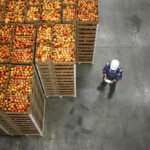New industry tyre recycling body launches in SA
New industry tyre recycling body launches in SA
The Tyre Recycling Industry Association of South Africa (TRIASA) has been launched in South Africa. This comes at a critical time for the local economy and the environment.
That’s according to Mehran Zarrebini, one of the body’s founder members and CEO of Hammarsdale-based truck tyre recycling operation, Mathe Group. Zarrebini, who steered Mathe Group from a start-up in 2012 to one of the industry’s major success stories today, advocates for tyre recycling at forums across the world.
The road towards efficiently repurposing used tyres, which pose health and environmental risks, has been rocky in South Africa. The Recycling and Economic Development Initiative of South Africa (REDISA) was established in 2013 with the primary goal of creating an environmentally friendly waste tyre management solution. Unfortunately, it was suspended in 2017 following allegations of mismanagement, corruption, and financial irregularities. Minimal recycling has taken place since then.
However, Zarrebini is confident that, as a registered stakeholder in the lead-up to the imminent finalisation of the Section 29 Integrated Waste Tyre Plan, TRIASA can make an important contribution to this new strategy, not only helping to whittle away the ever-growing stockpile of waste tyres, but also to create entrepreneurial and manufacturing opportunities as well as employment.
“Our aim is to unite the different elements of tyre recycling in South Africa and to provide a forum for discussion, knowledge exchange and collaboration on pressing issues within the industry. Our priority as TRIASA is to foster the growth of the tyre recycling industry, promoting a circular economy and reducing South Africa’s dependency on imported rubber,” he says.
TRIASA’s primary objectives are three-fold:
- Encouraging Green Public Procurement (GPP) and supporting the circular economy by promoting the use of recycled tyre material (RTM) in applications such as road resurfacing, construction, and infrastructure projects.
- Stimulating the use of recycled content in new products to replace imported rubber.
- Supporting research in tyre recycling. This would foster innovation in end-market applications for RTMs to expand their potential use and create new opportunities within the industry.
TRIASA members are companies and entities involved in the processing of waste tyres. They all employ one of the primary recycling technologies currently in use – mechanical or ambient grinding of tyres, pyrolysis (decomposition at high temperatures) of tyres, and pre-processing, shredding, and baling. All members of TRIASA must prove that they are processing waste tyre material, be registered with the Waste Bureau, and have supply agreements in place.
“I believe very strongly that industry should foster and nurture a strong relationship with government with respect to the implementation and management of the tyre waste management plan of South Africa. We believe the Department of Environmental Affairs, Forestry and Fisheries and TRIASA share common goals in safeguarding our environment and ensuring compliance of the waste tyre industry in South Africa,” Zarrebini notes.
He says that the disposal of waste tyres is an international challenge. In 2021, global tyre production was estimated to be 1.9 billion units, including tyres for on and off-road vehicles and equipment.
“The rule of thumb to estimate potential tyre arisings is one-for-one. For each tyre placed on the market – as original or replacement equipment – one tyre will reach the end of its road life. From then, it will be defined as waste,” Zarrebini explains, adding that the global tyre waste pile also includes rejects.
In 2021, the 27 EU member states permanently removed about 4.2 million tonnes of tyres from passenger cars, utility vehicles and trucks, and off-road vehicles (agricultural, mining, etc). This represented an increase of 300 000 tonnes over 2019. There are comparable quantities in other regions, including the Americas, Asia, Australia, and the Middle East.
Waste tyre statistics in South Africa are difficult to come by, posing a challenge for those devising a waste tyre plan. Although some role players provide accurate data, others have almost no record-keeping systems. Zarrebini points out that this emphasises the need for a national audit of waste tyres in South Africa.
An estimate, based on confirmed data by the Waste Bureau, suggests that an average of 13 million tyres weighing 300 000 tonnes are sold in South Africa each year through a network of between 1 400 to 2 000 dealerships.
The last government statistics available indicate that, in 2018/19, only about 54 460 tonnes of waste tyres were reprocessed.
Published by
Focus on Transport
focusmagsa




